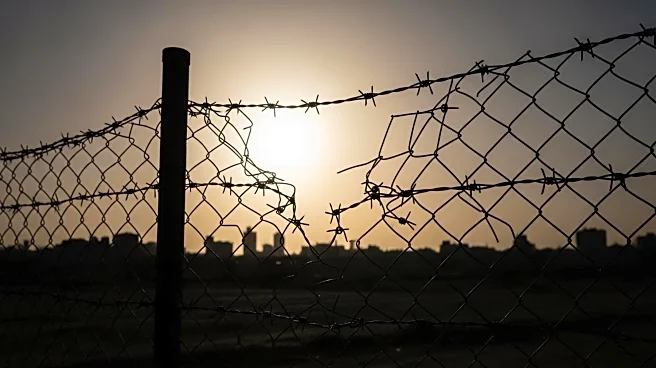What's Happening?
Israeli military operations in Gaza City have intensified following the cessation of daily pauses that allowed for humanitarian aid delivery. On Saturday, Israeli airstrikes resulted in the deaths of at least 17 individuals, according to Palestinian emergency workers. This escalation comes after Israel ended its policy of temporarily halting attacks to facilitate aid distribution. One of the strikes targeted Abu Obeida, a prominent spokesman for Hamas's Qassam Brigades, although it remains unclear if the attempt was successful. The attack occurred in the Rimal neighborhood, a densely populated area of Gaza City, and has contributed to the growing humanitarian crisis in the region.
Why It's Important?
The resumption of continuous military operations in Gaza has significant implications for the humanitarian situation in the region. The absence of daily pauses for aid delivery exacerbates the already dire conditions faced by the civilian population, including shortages of food, medical supplies, and other essential resources. The increased casualties and targeting of key Hamas figures may further escalate tensions and violence, potentially drawing international attention and intervention. The situation poses challenges for diplomatic efforts aimed at achieving a ceasefire and addressing the humanitarian needs of Gaza's residents.
What's Next?
The international community may respond with calls for renewed ceasefire negotiations and increased humanitarian aid to Gaza. The Israeli military's actions could prompt reactions from regional actors and global powers, potentially influencing diplomatic relations and peace efforts. Humanitarian organizations are likely to intensify their appeals for access to deliver aid and support to the affected population. The ongoing conflict may also impact political dynamics within Israel and Palestine, as well as broader Middle Eastern geopolitics.










